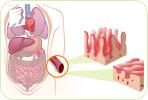Fatigue is a feeling of constant tiredness, and there are many issues that can cause it; these include medical conditions, unhealthy lifestyle choices, and workplace problems. Symptoms of fatigue include heavy eyelids, difficulty concentrating, and irritability. Managing fatigue at work is particularly important because the condition can lead to less productivity, lack of motivation, and an increased risk of workplace accidents. However, fatigue does not need to continue hanging over your head at work; keep reading to learn how to keep fatigue at bay.
Sleep Well
Sleeping well at bedtime and getting into a healthy sleep routine will mean you are more alert at work and will help reduce fatigue. Possible ways to promote good sleep include going to bed at roughly the same time every night, having a warm shower or bath before bed, and using your bed only as a place for sleep or sex. This means no TVs, laptops, or phones in the bedroom! This way, the mind will begin to associate the bedroom with relaxation and not work.
Avoid Alcohol and Caffeine
These substances can often make it more difficult to sleep when you need to or wake you up in the middle of the night, which can lead to feeling exhausted at work. Often, people use caffeine to stay awake or alcohol to fall asleep, but these are unhealthy crutches to use. One way of managing fatigue would be to cut down on alcohol and caffeine gradually, and try not to consume them in the hours before you plan to sleep when you have to work the next morning.
Balanced Diet
Eating a good breakfast in the morning is one of the best ways to manage fatigue. Without any nutrients in your system, the body and mind will find it hard to function at full capacity. Remember that while sleeping, your body has fasted, so it needs something to help get it out of its “sleep state”. A healthy breakfast should be high in protein, fiber, and vitamin C and should keep you feeling full and motivated throughout the morning. Snacks should also be healthy (e.g., fruits, vegetables, or nuts), as eating junk food will only lead to “crashes” when you feel tired again.
Pacing
Some people find pacing an effective way of managing fatigue at work. Pacing means getting to know your body's limits and balancing periods of activity with periods of rest. Over time, it might be possible to gradually increase the periods of activity, although the periods of rest are equally important. The most important thing to bear in mind is not to overdo it. Depending on the job, pacing could be challenging to put in place, but it is worth discussing with your supervisor or human resources contact, as managing fatigue well will ultimately benefit both company and worker.
Spend Time Relaxing
Stress is a major contributor to fatigue; being stressed uses a lot of energy and also leads to insomnia or less refreshing sleep. The ideal situation would be to avoid stressful situations, but this is not always possible, especially with many people having to manage demanding jobs and family life. Therefore, building stress management techniques into your day is essential in managing fatigue. Relaxation techniques reduce blood pressure, respiration rate, and pulse rate. These physical reactions should counteract the effects of chronic stress. Even at little as 10 - 15 minutes of breathing exercises a day will help you find relief from fatigue.
Managing fatigue at work is critical, as productivity and performance is important, and some jobs (i.e., construction or building) are even dangerous if an accident occurs, and so a high level of alertness is needed. Fatigue at work depend on each individual's situation; for example, for those doing night shifts, it can be harder. It is important, though, for all workers to follow the basic principles of developing a sleep routine, making time for relaxation, and eating well, and fatigue at work can be significantly reduced.
Sources
- Centers for Disease Control and Prevention. (2013). Treating the Most Disruptive Symptoms First. Retrieved September 1, 2014, from http://www.cdc.gov/cfs/management/treating-symptoms.html
- National Center for Complementary and Alternative Medicine. (2013). Relaxation Techniques for Health: An Introduction. Retrieved September 1, 2014, from http://nccam.nih.gov/sites/nccam.nih.gov/files/Backgrounder_Relaxation_02-20-2013.pdf?nav=gsa
- National Health Service UK. (2013). Chronic fatigue syndrome - Treatment. Retrieved September 1, 2014, from http://www.nhs.uk/Conditions/Chronic-fatigue-syndrome/Pages/Treatment.aspx
- National Health Service UK. (2014). How to get to sleep. Retrieved September 1, 2014, from http://www.nhs.uk/Livewell/insomnia/Pages/bedtimeritual.aspx
- Queensland Government. (2013). What Can Individuals Do to Manage fatigue. Retrieved September 1, 2014, from http://www.deir.qld.gov.au/workplace/hazards/fatigue/managing/index.htm#individuals




